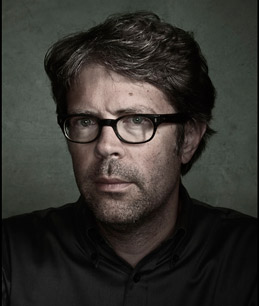
A raft of sea otters are at play in a narrow estuary at Moss Landing, near Santa Cruz, Calif. There are 41 of them, says a guy in a baseball cap. He counted. They dive and surface and float around on their backs with their little paws poking up out of the water, munching sea urchins or thinking about munching sea urchins. The humans admiring them from the shore don’t make them self-conscious. Otters are congenitally happy beasts. They don’t worry about their future, even though they’re legally a threatened species and their little estuary is literally in the shadow of the massive 500-ft. stacks of a power plant. One of the humans admiring them is Jonathan Franzen. Franzen is a member of another perennially threatened species, the American literary novelist. But he’s not as cool about it as the otters. He’s uneasy. He’s a physically solid guy, 6 ft. 2 in., with significant shoulders, but his posture is not so much hunched as flinched. At 50 , Franzen is pleasantly boyish-looking, with permanently tousled hair. But his hair is now heavily salted, and there are crow’s-feet behind his thick-framed nerd glasses. Franzen isn’t the richest or most famous living American novelist, but you could argue — I would argue — that he is the most ambitious and also one of the best. His third book, The Corrections, published in 2001, was the literary phenomenon of the decade. His fourth novel, Freedom, will arrive at the end of August. Like The Corrections, it’s the story of an American family, told with extraordinary power and richness. In a lot of ways, Freedom looks more like a 19th century novel than a 21st century one. The trend in fiction over the past decade has been toward specialization: the closeup, the miniature, the microcosm. After the literary megafauna of the 1990s — like David Foster Wallace’s Infinite Jest and Don DeLillo’s Underworld — the novels of the aughts embraced quirkiness and uniqueness. They zoomed deep in, exploring subcultures, individual voices, specific ethnic communities. Franzen skipped that trend. He remains a devotee of the wide shot, the all-embracing, way-we-live-now novel. In that sense he’s a throwback, practically a Victorian. His characters aren’t jewel thieves or geniuses. They don’t have magical powers, they don’t solve mysteries, and they don’t live in the future. They don’t bite one another, or not more than is strictly plausible. Freedom isn’t about a subculture; it’s about the culture. It’s not a microcosm; it’s a cosm. I’m at Moss Landing to talk to Franzen about Freedom. Franzen is here to look at birds: he’s a bird watcher.